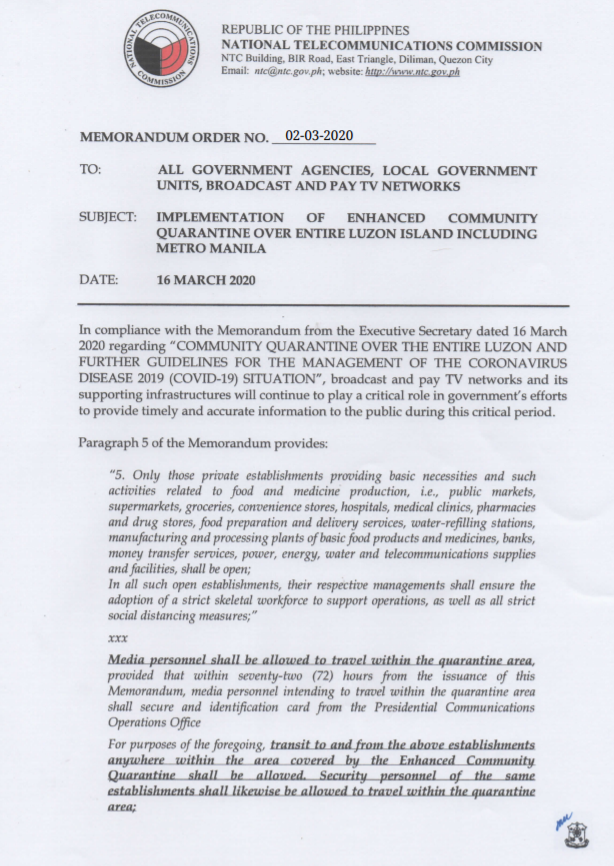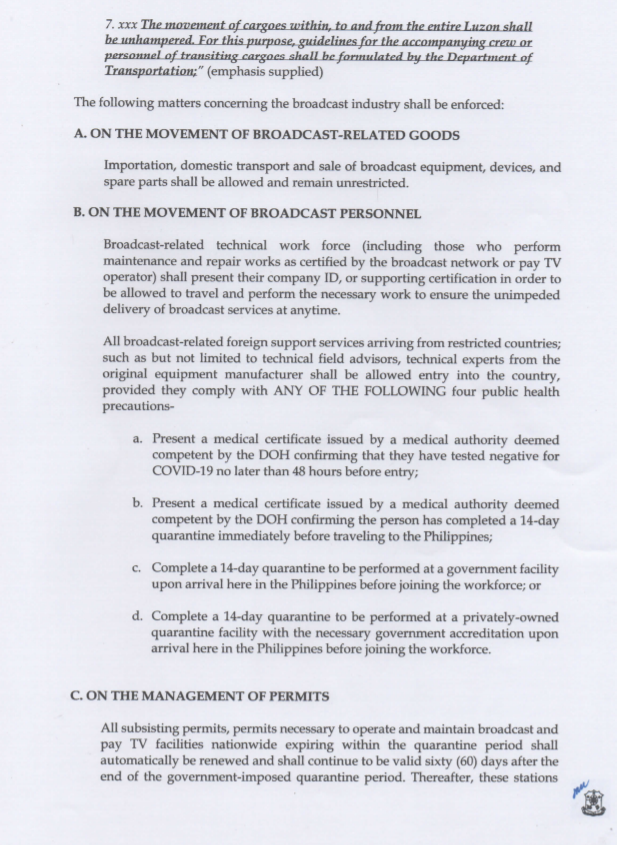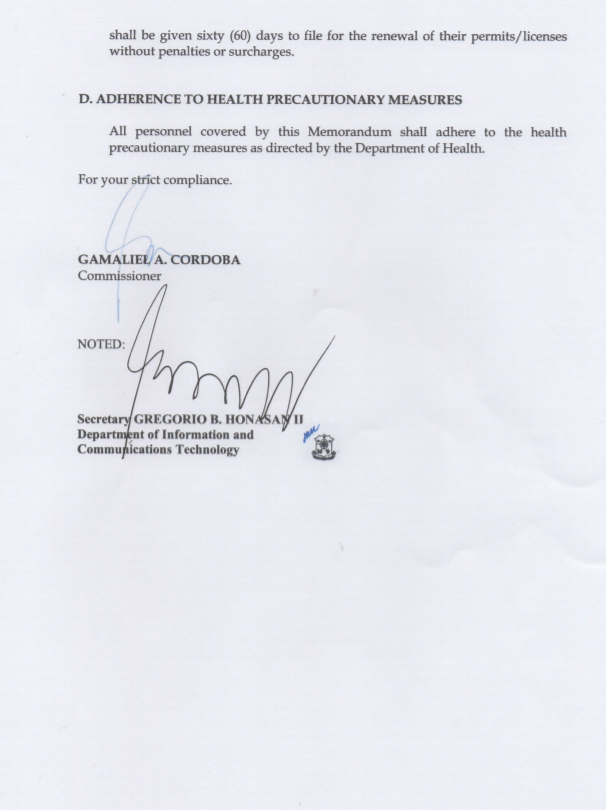AdvocatesTV • April 29, 2020
NTC Memo: Expiring broadcasting operation permits to be extended
Photo Credit: NTC
ABS-CBN Broadcasting Corporation’s Channel 2 and its affiliated radio, cable and TV channels are projected to continue operating at least up to July 15, 2020 with the National Telecommunications Commission’s (NTC) memorandum order allowing broadcasting companies that have expiring permits to operate for 60 days after the lifting of the extended community quarantine (ECQ).
The NTC, in its memorandum numbered 02-03-2020 issued March 16, 2020, said that "all subsisting permits, permits to operate and maintain broadcast and pay TV facilities nationwide expiring within the quarantine period shall automatically be renewed and shall continue to be valid sixty (60) days after the end of the government-imposed quarantine period. Thereafter, these stations shall be given sixty (60) days to file for the renewal of their permits/licenses without penalties or surcharges.”
ABS-CBN, whose broadcast franchise technically ended March 2020, was allowed to operate up to May 4, 2020 with the House of Representatives’ franchise committee barely starting hearings on the matter when the legislature went on its Lenten break.
While Congress resumes on May 4, the Covid 19 Pandemic has pushed the NTC to extend the operating permits of all broadcast firms falling due in recognition of the need for massive public information resources.
President Rodrigo Roa Duterte has announced the possible full lifting of the ECQ for May 15, 2020, although the government plans are still fluid and schedules subject for reevaluation, depending on developments of the effects of the pandemic. The current schedule places the 60-day period of temporary broadcast operations to July 15.
In the recent months of the increasing Covid 19 crisis, ABS-CBN has been cited by President Duterte and Secretary Carlo Nograles of the Interagency Task Force (IATF) for its role as a news media entity. The station's Public Affairs and philantropic work such as the Lingkod Kapamilya Foundation and the Pantawid ng Pag-Ibig have raised hundreds of millions of pesos to help in government's efforts to provide food and basic and medical necessities to poor communities and crisis frontliners.
In 2017, President Rodrigo Duterte accused ABS-CBN of not airing his campaign ads though he had paid for them. He also expressed anger over black propaganda advertisements aired by the company against him and threatened to close the station several times. After ABS-CBN president and CEO Carlo Katigbak issued an apology in February, Duterte softened his stance.
However, about the same time Solicitor General Jose C. Calida moved to stop the franchise renewal of ABS-CBN in a roundabaout way by filing a quo warranto petition questioning the validity of the station’s existing franchise. The motions are pending with the Supreme Court.
TV broadcast stations in the Philippines are regulated by law through the congressional franchise system. Congress issues a law allowing a specific station to operate for a certain time period. ABS-CBN’s current franchise was approved through Republic Act No. 7966 in 1995. Congress started deliberating on ABS-CBN’s franchise renewal in late February but the onset of the Covid-19 pandemic overtook it in priority.




